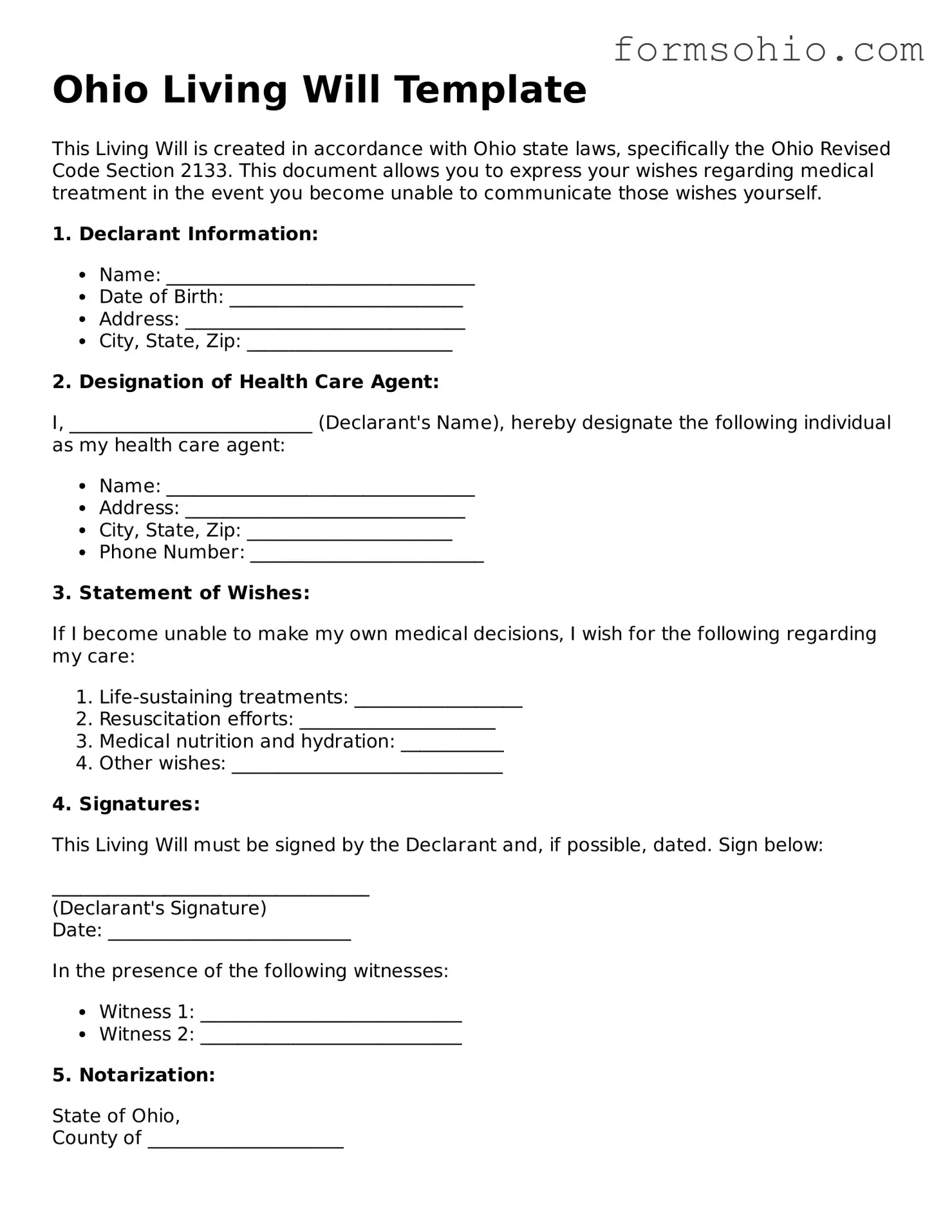Printable Living Will Template for the State of Ohio
A Living Will is a legal document that allows individuals in Ohio to express their wishes regarding medical treatment in the event they become unable to communicate those wishes themselves. This form provides clarity to healthcare providers and loved ones about what kind of life-sustaining measures one prefers or wishes to avoid. Understanding this important document can help ensure that your healthcare choices are respected and followed.
Get This Document Online

Printable Living Will Template for the State of Ohio
Get This Document Online
Complete this form efficiently and quickly
Complete Living Will online without printing hassles.
Get This Document Online
or
Free PDF File
